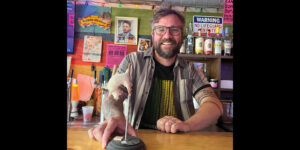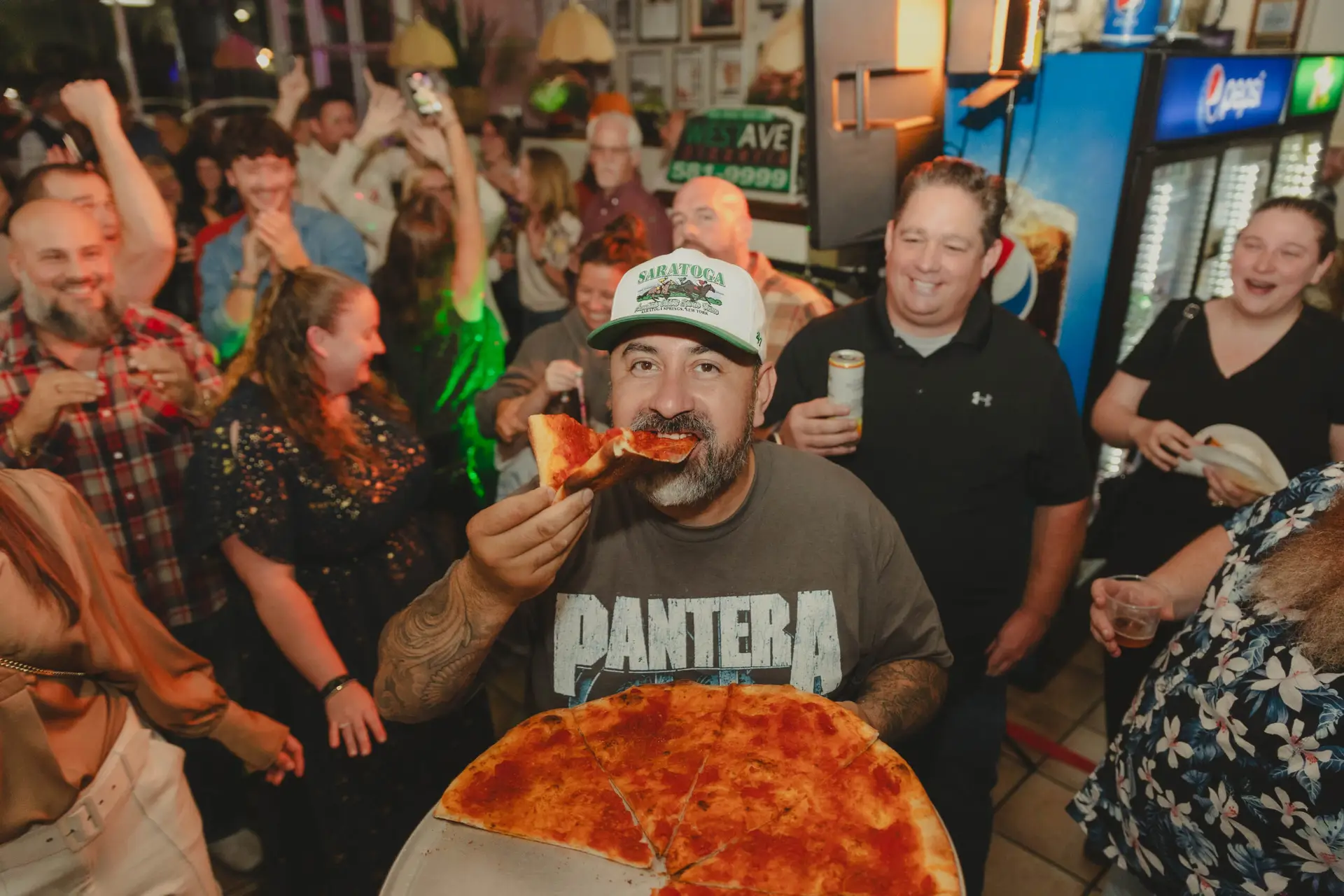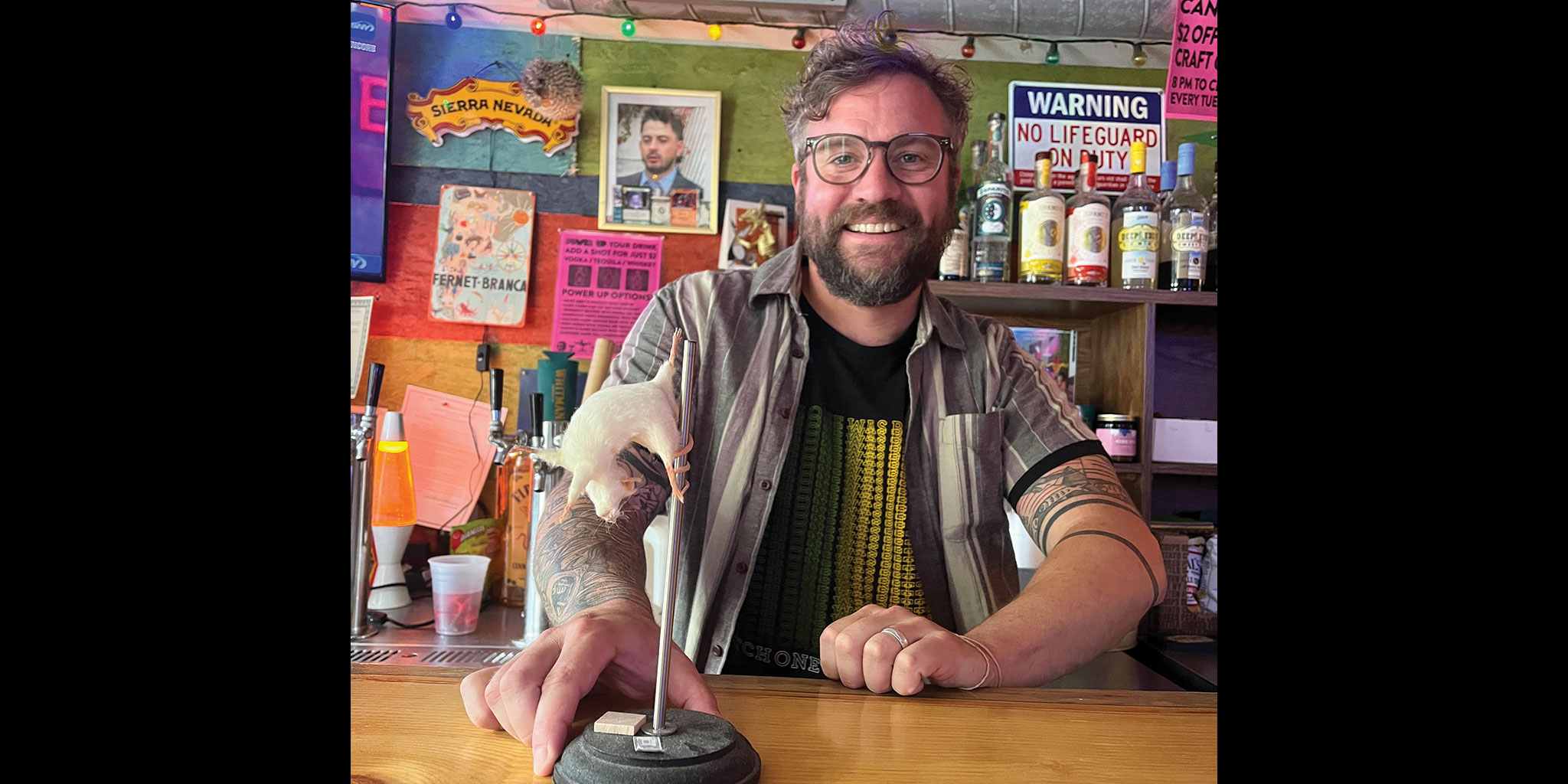Editor’s Note: In her semi-regular column for Saratoga Living, correspondent and homeless advocate Lisa Mitzen has introduced Saratogians to a number of faces of the city’s homeless population. In this latest report, Mitzen tracked down Dana, a man who has been dealing with the realities of homelessness, while battling sobriety, all within the context of a global pandemic.
After 39 years of battling alcoholism, imagine that you decide to tackle sobriety while living in a homeless shelter—and then a global pandemic hits. That’s exactly what happened to 53-year-old Dana. He was kind enough to spend some socially distanced time with me to share his story.
Born and raised in Rye, NY, Dana describes his childhood as “wonderful.” As an only child, he says he was spoiled rotten, spending his winters in New York and summers on Cape Cod. Around the age of 14, things changed when Dana and his friends started drinking beer. Then, he says, “I was off to the races.”
Even as Dana was battling his addiction, he describes his parents as being very supportive of his attempts at recovery. He was only 18 years old when they paid for his first stint in rehab. His parents were willing to help him in any way they could, as long as he didn’t come back home. “I was a mess and far too volatile to be in their daily life,” he tells me. Dana was able to maintain his sobriety, on and off, for 39 years, and at one point, he was sober for five years, but he always went back to drinking (beer was always his drink of choice; he never got into drugs or hard alcohol).
Throughout his life, Dana always found work and lived in many places across the country. Sadly, he says that he managed to lose every job he ever got and ruin every relationship he ever had. Fast forward to November 2018, when Dana landed a great job in Upstate New York, but one thing led to another, and he once again found himself unemployed with nowhere to live. He took his belongings and rented a climate-controlled storage unit in Albany, far less expensive than an apartment. Landing one job after another, he earned enough to support his habit, cover his bus rides to and from his job, and even joined a gym near the storage unit where he would shower. Dana lived like this for several months. “To me, I was so mentally sick [thinking] that it was normal,” he says.
In the fall and winter months, when the frigid temperatures returned to Upstate New York, Dana ran up the few credit cards he had, so he could stay in motels. It was far better than the storage unit, and he could just feed his habit night after night. Eventually, he began having dark thoughts, and on the night of this past February 17, Dana recalls saying to himself: “Something has to change; I can’t do this anymore; help me.” The realization that he was one step away from becoming a filthy, homeless, drunk person was enough to make him go to the Code Blue Shelter in Saratoga Springs. The smell hit Dana hard at the door, but he knew, 100 percent, that it was the right move. It was now or never; he had to change his life.
After one week of tackling sobriety, he moved to the Shelters of Saratoga (SOS) branch on Walworth Street, where he knew he could get the support he needed to remain on track. Dana felt hopeful for the first time in years—and then the COVID-19 crisis hit. Governor Cuomo put forth the stay-at-home order and mandated social distancing, something that is physically impossible in a homeless shelter. Soon thereafter, SOS collaborated with the City of Saratoga Springs and the Holiday Inn Saratoga Springs to move its guests into the hotel for the duration of the crisis.
Thankfully, Dana’s current job is considered “essential,” so he’s been able to continue working throughout the crisis. But he says his continued treatment has been difficult, because he can no longer attend group rehab meetings; nothing compares to being able to sit in the same room with others, facing the same struggles. Also, with gyms closed, Dana hasn’t been able to workout, one of his favorite distractions. He continues to take things one day at a time and is grateful for everything that Shelters of Saratoga has done and is doing for him. “Three months ago, I was a bum, sitting in Albany, drinking beer on a bus and thinking my life was over,” he says. “And now I’m here. I owe everything, literally, everything, after almost 40 years of drinking, to Shelters of Saratoga. Who knew that they would help me to save my life?”















